What are advanced Waterproofing Techniques?
Advanced waterproofing techniques have revolutionized the construction and maintenance industries, offering innovative solutions to tackle water intrusion and its associated problems. As buildings become more complex and demanding, the need for robust and effective strategies has augmented. These techniques go beyond traditional methods, leveraging technology, materials, and expertise to provide long-lasting protection against water damage. In this blog, we’ll explore some of the cutting-edge advanced waterproofing techniques for optimal results.
-
Liquid Applied Membranes
Liquid applied membranes are a versatile and effective solution for waterproofing surfaces, including roofs, foundations, and below-grade structures. These membranes are cured to develop a continuous, seamless barrier. They conform to irregular surfaces and provide exceptional adhesion, ensuring water-tightness even in challenging conditions.
What sets liquid applied membranes apart is their capability to bridge cracks and gaps, effectively sealing potential points of water entry. These membranes are used in areas where traditional sheet membranes are difficult to install. Additionally, liquid applied membranes can be formulated to provide specific properties, such as UV resistance, chemical resistance, and high flexibility.
Read More
How to Find the Best Waterproofing Chemical Price in Pakistan?
Can Waterproofing Membrane Cause Increase in Heat Absorption in Karachi?
How Can a Waterproofing Membrane Help Fix a Leaky Water Tank in Pakistan?
-
Bentonite Waterproofing
Bentonite waterproofing utilizes the natural swelling properties of bentonite clay to create a barrier against water intrusion. This technique involves the application of bentonite clay in its granular or sheet form to the exterior of a structure’s foundation. When exposed to moisture, bentonite clay swells to several times its original size, effectively filling voids and gaps to prevent water from penetrating.
Bentonite waterproofing is effective in areas with high water tables or soil conditions that are prone to moisture infiltration. The self-healing nature of bentonite clay makes it a reliable solution for long-term waterproofing.
-
Crystalline Waterproofing
Crystalline waterproofing is a unique approach that transforms concrete into a water-resistant barrier. This technique involves the addition of specially formulated crystalline admixtures to the concrete mix. As the concrete cures, these admixtures react with water and unhydrated cement particles to form insoluble crystals within the concrete’s capillary pores. These crystals block the pathways through which water can pass, effectively preventing water intrusion.
Crystalline waterproofing is not just a surface treatment; it becomes an integral part of the concrete structure, providing long-lasting protection. This technique is favorable for surfaces where traditional waterproofing methods may not be practical or effective.
Read More
Can Roof Insulation Material Handle Heatwaves in Karachi?
Can Roof Insulation Material in Karachi Secure from Rain?
Can Waterproofing Chemicals Be Used on Every Material in Karachi?
-
Hydrophobic Coatings
Hydrophobic coatings, also known as water repellent coatings, function by creating a protective barrier on the surface that repels water and other liquids. These coatings use nanotechnology to modify the surface at a microscopic level, reducing its affinity for water molecules. As a result, water beads up and rolls off the surface, preventing moisture from penetrating and causing damage.
Hydrophobic coatings can be applied to a variety of surfaces, including concrete, masonry, wood, and metal. They are useful in exterior applications where surfaces are exposed to rain, snow, and other environmental factors. These coatings not only provide water resistance but also offer protection against stains, dirt, and UV radiation.
-
Injectable Grouts
Injectable grouts are advanced solutions for repairing and waterproofing cracks in concrete and masonry structures. These grouts are injected into cracks and voids, where they expand and seal the gaps, effectively preventing water ingress. The properties of injectable grouts permit them to fill voids of varying sizes, ensuring a comprehensive seal. They are used in applications, such as sealing cracks in concrete walls, dams, tunnels, and other structures.
Conclusion
Advanced waterproofing techniques have brought about a new era of construction and maintenance, where structures are safeguarded against the damaging effects of water intrusion through innovative methods. Liquid applied membranes, bentonite waterproofing, crystalline waterproofing, hydrophobic coatings, and injectable grouts are just a few examples of these cutting-edge solutions. As technology and research continue to evolve, the construction industry benefits from a wide range of options to choose from, tailoring waterproofing strategies to meet specific needs and challenges. By incorporating these advanced techniques, architects, engineers, and builders can ensure that structures remain durable, resilient, and protected for years to come.
Contact Lakhwa Chemical Services for a quick survey!
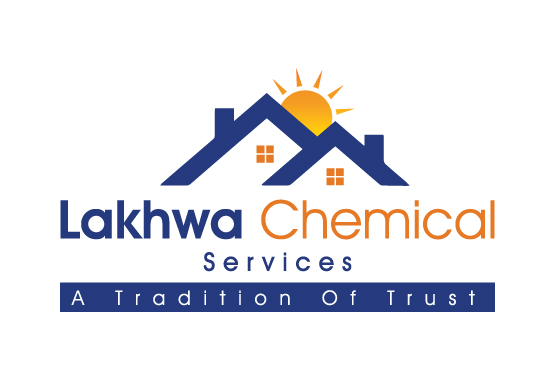
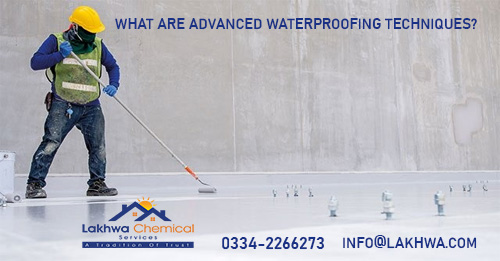
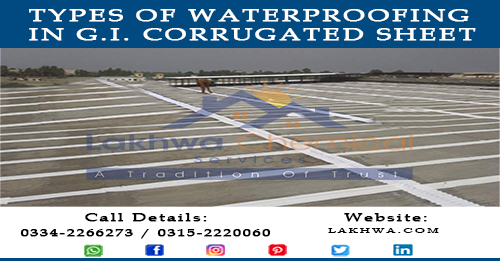
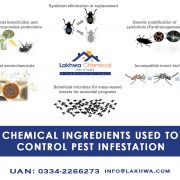
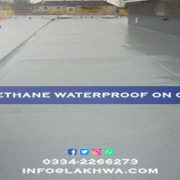

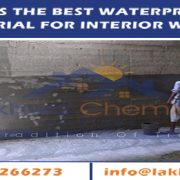
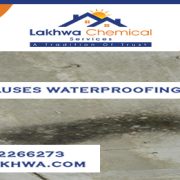

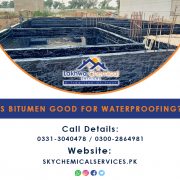
Leave a Reply
Want to join the discussion?Feel free to contribute!